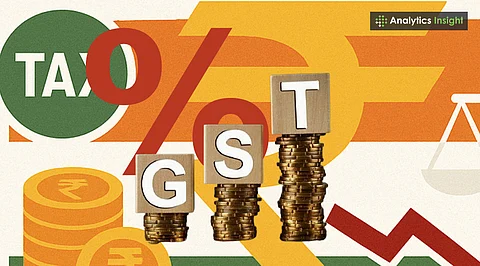Recent reductions in the Goods and Services Tax (GST) rates have sparked a significant surge in festive sales, with some retailers reporting growth rates between 35% and 100%. Despite the celebration among businesses, state finance officials are raising alarms about a potential revenue shortfall in the months ahead, as the effects of these tax cuts may not be sustainable.
Record Sales Following GST Rate Adjustments
The GST Council’s decision to streamline tax slabs from four main rates to two, along with the introduction of a special category for luxury items, has lowered prices on approximately 375 commonly used products. These include automobiles, electronics, apparel, and footwear. Trade associations indicate that this year’s Dasara sales reached the highest levels seen in over a decade.
According to Mayank Rohtagi, secretary of the Bangalore Commercial Street Association, “Consumer sentiment is clearly upbeat as the prices of many goods have fallen simultaneously.” Retailers experienced an average sales growth of around 45% year-on-year, particularly in the electronics, garments, and footwear sectors. Some automobile brands reported double the sales compared to last year. Looking ahead, retailers anticipate the momentum to carry through to Diwali, with expectations of another round of record-breaking purchases.
Concerns Over Revenue Sustainability
Despite the impressive surge in sales, commercial tax authorities express caution. Officials predict that the current uptick may be temporary and insufficient to counterbalance the revenue losses resulting from the rate cuts. Vipul Bansal, the Commercial Taxes Commissioner, noted, “Revenue shortfall looks imminent as this spurt is unlikely to last beyond Diwali.”
Initial estimates suggested a shortfall of Rs. 15,000 crore, but revised projections now indicate losses could exceed Rs. 17,000 crore. Data reveals that Karnataka’s GST collection for September reached Rs. 13,495 crore, reflecting a 7% gross increase, which aligns with the national average. However, after accounting for Integrated GST (IGST) settlements, the net collection was only Rs. 6,653 crore, indicating a modest 5% increase, significantly lower than the 12% growth rate observed earlier in the fiscal year.
Chief Minister Siddaramaiah, who also serves as Finance Minister, had budgeted Rs. 92,133 crore in GST collections for FY25, with Rs. 39,132 crore raised to date. Economic adviser Basavaraj Rayareddi mentioned that the government is exploring strategies to enhance compliance and will continue seeking compensation from the central government for the anticipated shortfall.
B.T. Manohar, a member of the State GST Advisory Committee, remarked, “Consumption has risen due to lower prices, and we hope this momentum sustains. But sustaining revenue alongside affordability remains the real test in the months ahead.”
While the festive season offers a glimmer of hope for retailers, the underlying concerns regarding tax revenue highlight the complexities of balancing consumer spending and government fiscal health.
